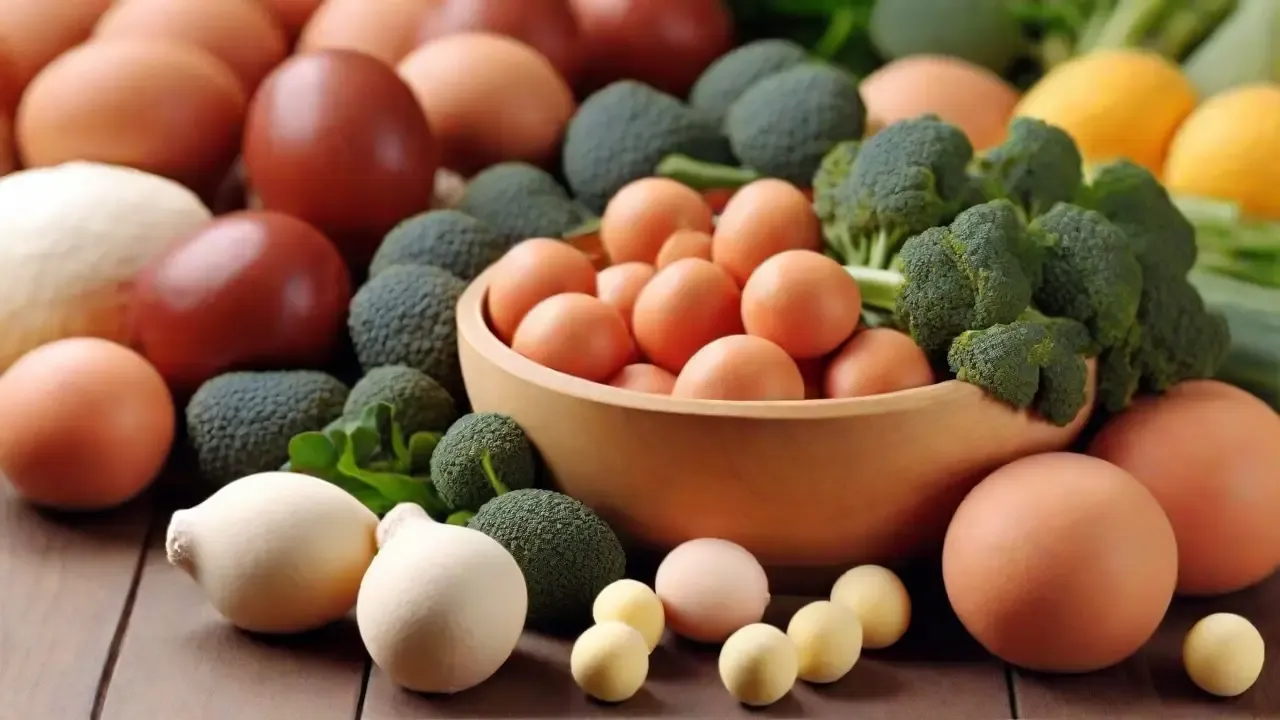Vegetarian Vitamin B12 Foods
Vegetarianism has gained significant popularity in recent years due to its various health and environmental benefits. However, one common concern for vegetarians is obtaining essential nutrients, such as Vitamin B12, which is primarily found in animal-based products. Vitamin B12 plays a crucial role in maintaining a healthy nervous system, supporting brain function, and aiding in the production of red blood cells. Fortunately, there are numerous vegetarian sources of Vitamin B12 that can help you boost your health naturally. In this article, we will explore these vegetarian Vitamin B12 foods and their benefits.
 |
| Vegetarian Vitamin B12 Foods |
Table of Contents:
1. Dairy Products
2. Fortified Plant-Based Milk
3. Eggs
4. Nutritional Yeast
5. Fortified Cereals
6. Seaweed
7. Fermented Foods
1. Dairy Products
Dairy products are a rich source of Vitamin B12 for vegetarians. Milk, cheese, and yogurt contain significant amounts of this essential nutrient. Including these dairy products in your diet can help you meet your daily Vitamin B12 requirements.
2. Fortified Plant-Based Milk
For individuals following a vegan or lactose-free diet, fortified plant-based milk is an excellent alternative. Many brands fortify their plant-based milk with Vitamin B12, ensuring that it provides the same nutritional benefits as dairy milk.
3. Eggs
Eggs are not only a versatile ingredient in vegetarian cooking but also a good source of Vitamin B12. Consuming eggs regularly can help you maintain adequate levels of this essential vitamin.
4. Nutritional Yeast
Nutritional yeast is a popular ingredient among vegetarians and vegans due to its cheese-like flavor and high Vitamin B12 content. Adding nutritional yeast to your meals, such as sprinkling it on salads or incorporating it into sauces, can be an enjoyable way to increase your Vitamin B12 intake.
5. Fortified Cereals
Many breakfast cereals are fortified with Vitamin B12, making them a convenient and tasty way to obtain this nutrient. Check the labels of your favorite cereals and opt for those fortified with Vitamin B12 to start your day off right.
6. Seaweed
Seaweed, such as nori, is a common ingredient in Asian cuisine and an excellent source of Vitamin B12 for vegetarians. Including seaweed in your diet, either by consuming sushi rolls or adding it to soups and salads, can provide you with this essential nutrient.
7. Fermented Foods
Fermented foods like tempeh, miso, and sauerkraut not only offer probiotic benefits but also contain Vitamin B12. These foods are a great addition to a vegetarian diet and can contribute to your overall Vitamin B12 intake.
Questions and Answers:
Q: Can't I rely on plant-based foods alone to meet my Vitamin B12 needs?
A: While some plant-based foods contain Vitamin B12, it is challenging to obtain sufficient amounts solely through a vegetarian diet. Incorporating fortified foods or considering supplementation is advisable to ensure optimal Vitamin B12 levels.
Q: Are there any health risks associated with Vitamin B12 deficiency?
A: Yes, a deficiency in Vitamin B12 can lead to various health issues such as fatigue, weakness, nerve damage, and anemia. It is crucial to maintain adequate Vitamin B12 levels to support overall health and well-being.
Q: How can I determine if I have a Vitamin B12 deficiency?
A: If you experience persistent fatigue, weakness, tingling sensations, or other unusual symptoms, it is recommended to consult with a healthcare professional who can perform blood tests to assess your Vitamin B12 levels.
Q: Can't I rely on Vitamin B12 supplements instead of incorporating these foods?
A: Vitamin B12 supplements can be an effective way to ensure you meet your daily requirements. However, obtaining Vitamin B12 from whole foods offers additional nutritional benefits, and a varied diet is always beneficial for overall health.
Q: How much Vitamin B12 do I need on a daily basis?
A: The recommended daily intake of Vitamin B12 varies based on age and other factors. Generally, adults require around 2.4 micrograms of Vitamin B12 per day. It is advisable to consult with a healthcare professional to determine the specific dosage suitable for your needs.
Conclusion:
Incorporating vegetarian Vitamin B12 foods into your diet is essential for maintaining optimal health. Whether you choose dairy products, fortified plant-based milk, eggs, nutritional yeast, fortified cereals, seaweed, or fermented foods, each of these options can help you meet your Vitamin B12 requirements naturally. Remember to pay attention to your body's signals and consult with a healthcare professional to ensure you maintain adequate Vitamin B12 levels. By making informed dietary choices, you can enjoy the benefits of a vegetarian lifestyle while supporting your overall well-being.


